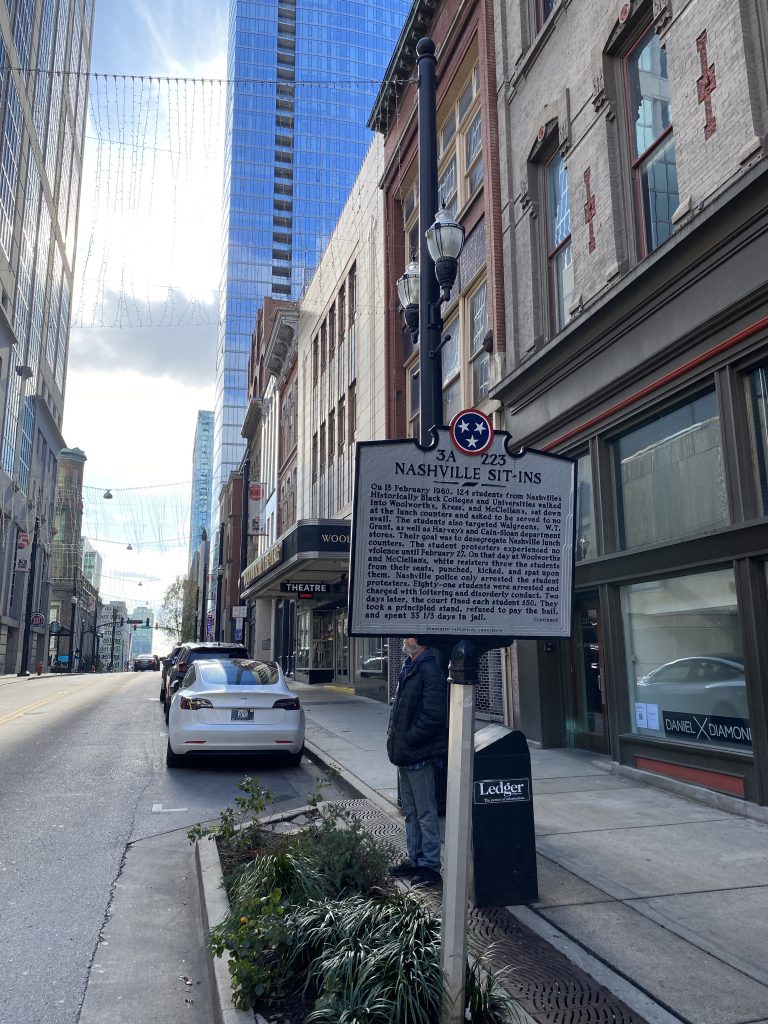This has been a busy season of travel for the Thinking Nation team, but the travel ended on a high note with the National Council for Social Studies in Nashville, TN. With almost 5,000 people in attendance, it is by far the largest gathering of social studies educators each year. The weekend was filled with vibrancy, collaboration, and especially new friendships. It really is such a treat to be a part of.
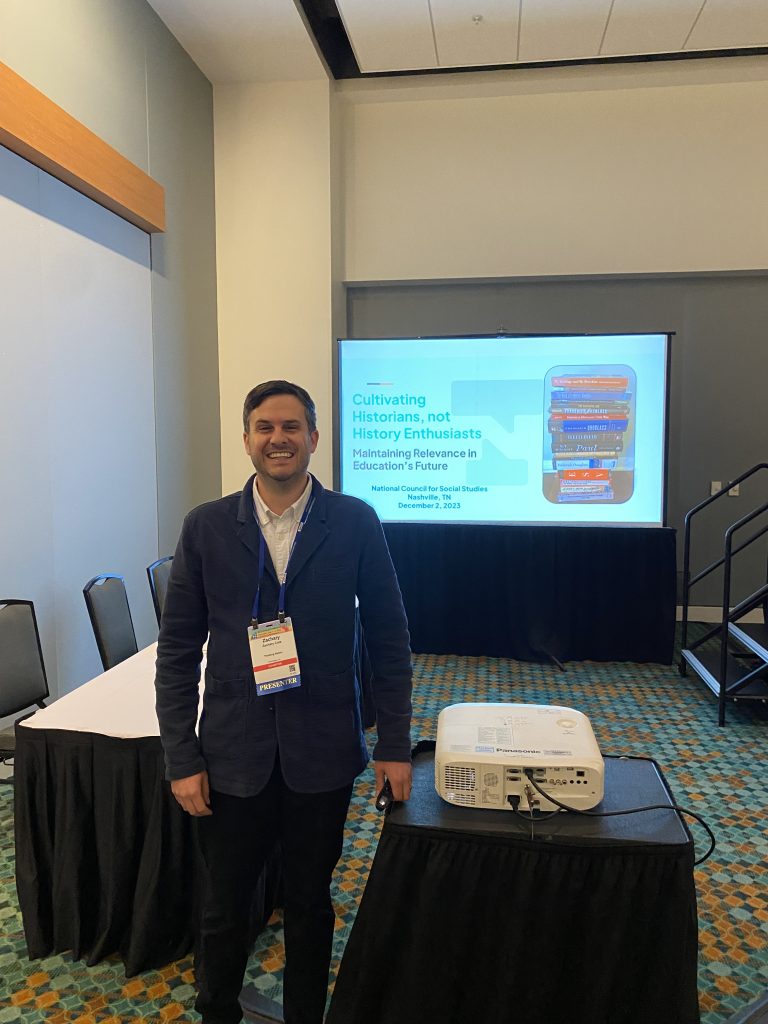
This year, I was fortunate to present a power session, entitled “Cultivating Historians, not History Enthusiasts: Maintaining Relevance in Education’s Future.” I’ve written in the past on this distinction, but it was especially exciting to dive deeper into the ramifications of making this distinction among fellow social studies educators. In the session, I addressed why our primary goal should be to cultivate historical thinkers in our classrooms in order to best empower our students as both citizens and future participants in the workforce. Moreover, historical thinking can be a unifier in our discipline. Often, we silo ourselves based on the content we teach (World History, U.S. Government, Ethnic Studies, etc.), which makes it hard for us to collaborate and vertically align across our discipline. As I wrote in Education Week back in May:
We can bring legitimacy back to what we do. Focusing on the discipline rather than the content allows us to rise above the culture wars, redeem ourselves as teachers of literacy so that we can properly collaborate with other content areas, and, most importantly, empower our students with the skills and dispositions to reinvigorate a visibly injured democracy.
“History Teachers Deserve Respect,” Education Week, May 15, 2023.
Cultivating historians in our classrooms is essential if we want to be seen as a legitimate discipline in such a future-focused education atmosphere.
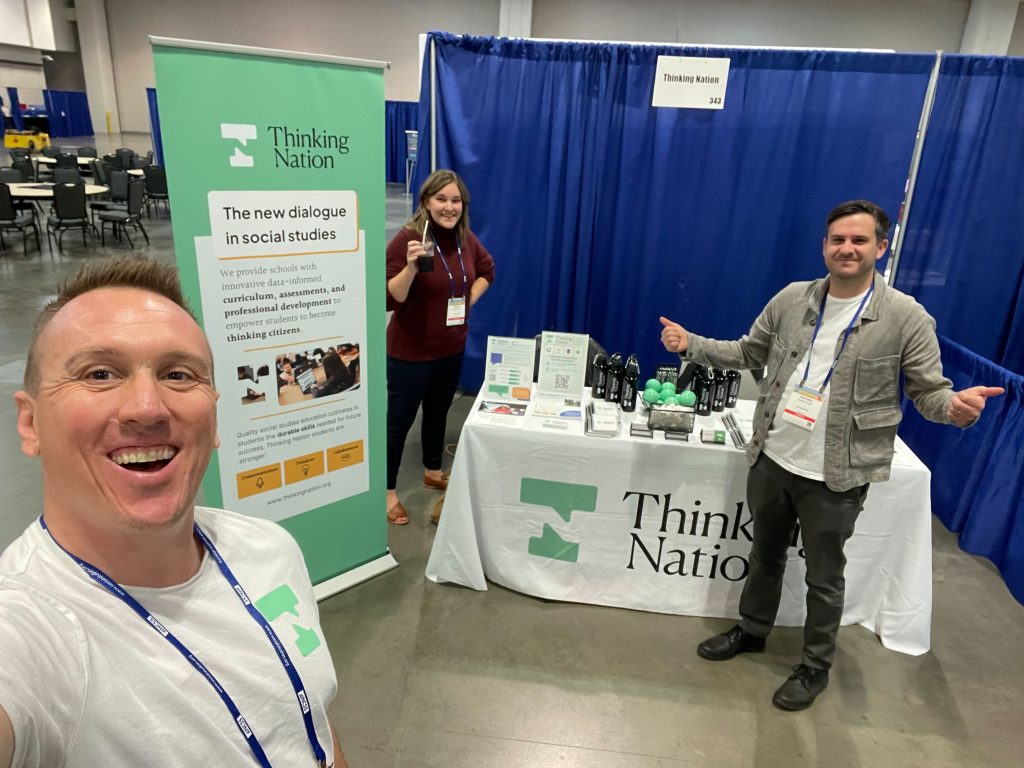
But onto the rest of the conference. Spenser (Our COO), Annie (Our Director of Curriculum), and myself had such a fun (and busy) time in the exhibit hall talking to educators from around the country. We firmly believe that our resources, assessments, and professional development can help facilitate a paradigm shift in classrooms and schools, and we were so excited to share more about that with curious educators.
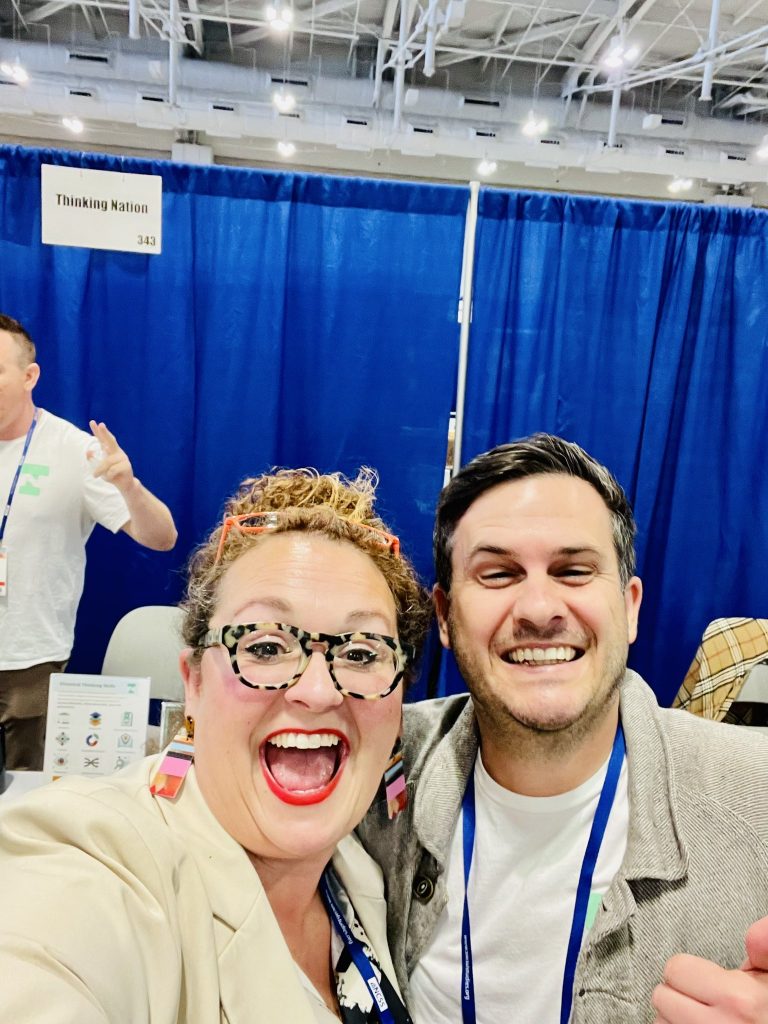
We also got to meet or reconnect with such inspiring educators throughout the country. It was great to finally meet two prominent Instagram history educators (Of course our very own Annie Jenson is @apushladyboss): Dan Lewer (of @History_4_Humans) and Cate Baumgarten (of @thegreatcatehistory). Cate even saved my own presentation by lending me her clicker! Thank you Cate!
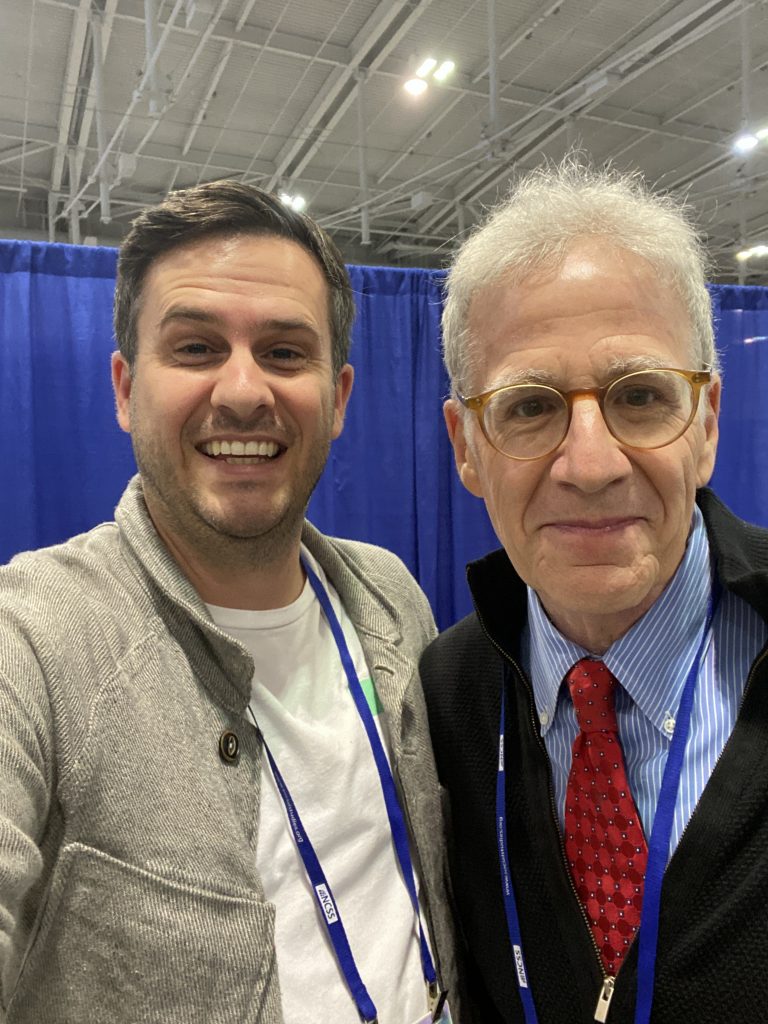
I also finally met and enjoyed a conversation with Karalee Nakatsuka, or better known as @historyfrog (GLI’s CA Teacher of the Year!) She has consistently been doing such great work pushing boundaries in using edtech in her history classroom. You’re a rockstar, Karalee! It was great to connect with folks from the Bill of Rights Institute, OER Project, Sam Wineburg of SHEG (Now Digital Literacy Group), and Sarah Jencks who does incredible work in the museum space (civicmuseums.org). The list could go on! NCSS continues to be such a fruitful and rejuvenating conference and we feel so fortunate to be a part of such a dedicated education community.
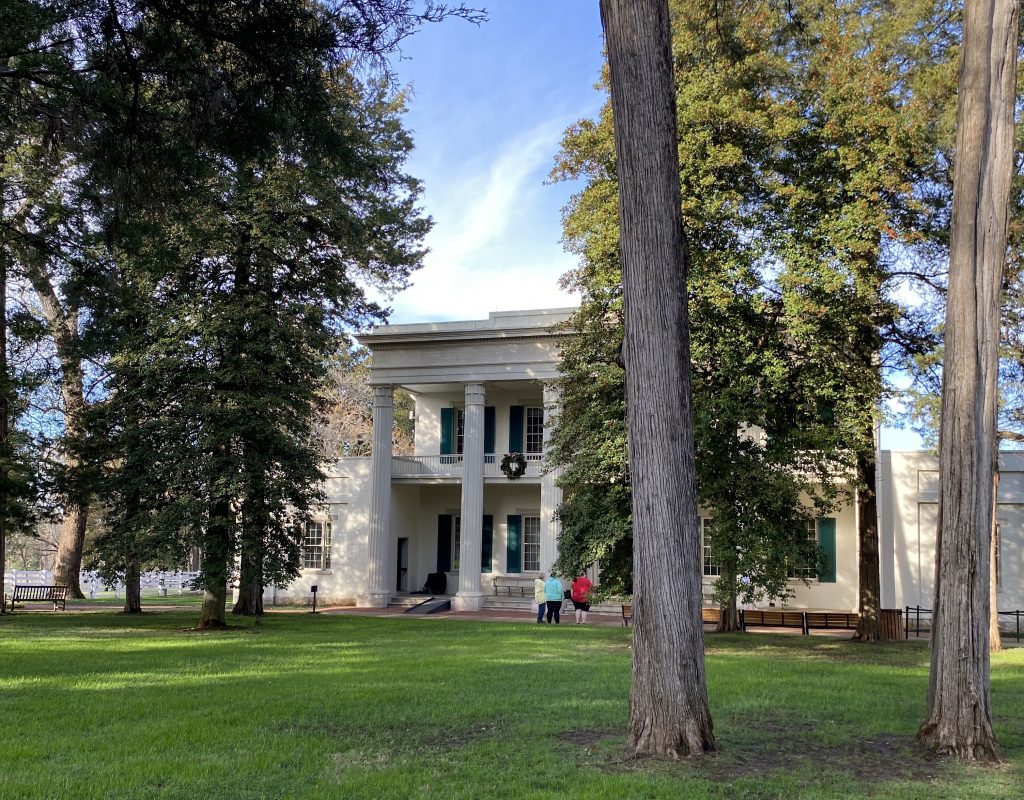
Lastly, it was a treat to see some of Nashville’s rich history. We walked around historic broadway where the music could not be contained to the bars they originated from. The streets were flowing with talented music. We got to see Tennessee’s State Capital (where President James Polk is buried), and Andrew Jackson’s Hermitage. But perhaps most inspiring was the several Civil Rights Movement markers throughout the city. Walking to Woolworth’s where the first lunch counter sit-ins took place and stumbling upon a parking lot where the First Baptist Church once stood and used as an organizing location for the sit-ins were both inspiring. And no surprise, spending time at the National Museum of African American Music was so enriching and fun! I’ll definitely need to head back to Music City and explore more! Who will we see next year at the National Council for Social Studies conference in Boston??
